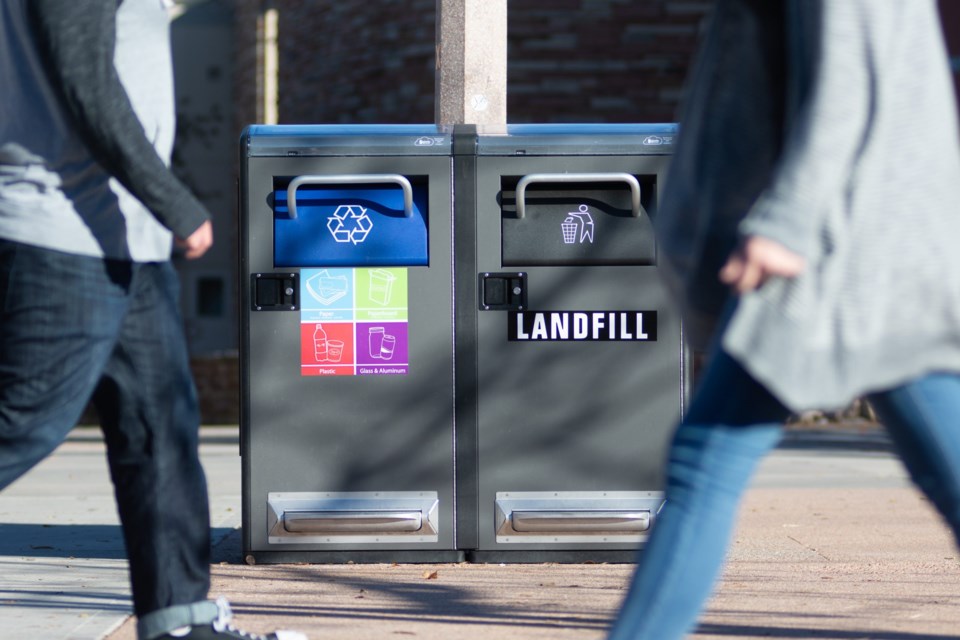Longmont will begin placing smart trash and recycling cans at 10 high-use locations throughout the city to offset high demand for trash collection and a shortage of sanitation workers.
The city will turn to Massachusetts-based Big Belly Solar to lease the containers over the next five years. BigBelly’s smart trash/recycle containers provide remote monitoring and an automatic trash compactor. Stations can be configured as standalone single stations or as multi-stream double or triple stations to accommodate each community’s waste needs, according to a staff report to the city council.
City Council this week approved a lease agreement with BigBelly at a cost of $87,600 over five years. Funding is included in the city’s parks maintenance budget.
Each station is customized based on capacity, waste stream and other options, the city report states.
“The full suite of smart stations are field-proven to be durable and street-tough across all environmental conditions,” the staff report states.
The BigBelly units will be installed at Dawson Park, Civic Center, Quail Campus Recreation Center, Roosevelt Park/Memorial Building, Sandstone, Collyer Park, Willow Farm Barn, and Flanders Park, according to the city.
Each container will hold 80% more capacity and provide remote monitoring for targeted collection, the report states
Currently, there are 65,000 BigBelly containers deployed in 60 countries, Timber Toste, Longmont’s parks and forestry superintendent, said via email. In Colorado, Colorado State University, the city of Fort Collins, city of Lakewood and the town of Crested Butte have units installed, Toste said.
The city is turning to the remote containers after experiencing a huge need for trash services over the past two years, the staff report states.
As a result of the COVID-19 pandemic in 2020, the city’s parks operations department experienced a 56% increase in trash collection throughout the parks, trails and greenway system, the staff report states.
This increase puts more strain on field technicians to get trash collected. Also, a labor shortage in 2020 and 2021 made it more challenging to hire staff to offset the increase in workload, the staff report states.
“Parks Operations needs to find a way to offset the increase in sanitation collection and the inability to hire staff or contractors,” according to the report.



